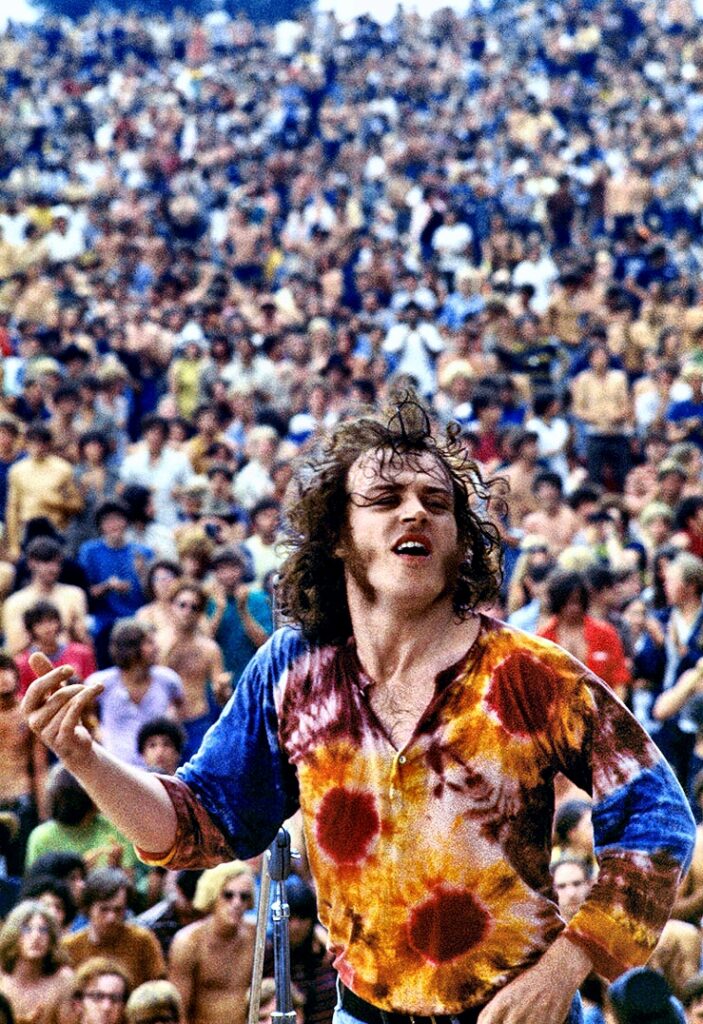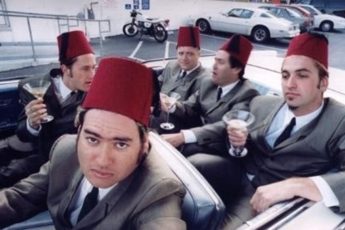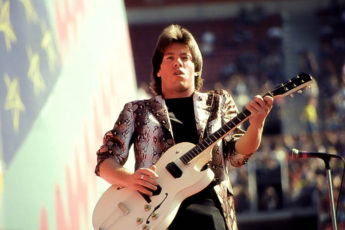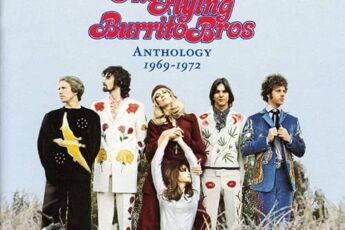It’s difficult to conceive of a cover version so vividly seizing control in the public consciousness from its original recording more so than Joe Cocker’s expropriation of ‘With a Little Help from My Friends’ from none other than The Beatles. Sure, there would be seemingly endless possibilities to consider: Jimi Hendrix from Bob Dylan on ‘All Along The Watchtower,’ ‘Respect’ by Aretha Franklin care of Otis Redding; the ambiguous duality of ‘You’ve Got a Friend’ by both Carole King and James Taylor, and many others. But in Cocker’s radical rearrangement, amazingly arriving just over a year subsequent to its original appearance on a little album named Sgt. Pepper’s Lonely Heart Club Band, he brilliantly transformed the entire character of an already extremely famous song further than in any other instance imaginable, permanently reshaping its historical footprint (and in case you don’t believe it, consider that on the not infrequent occasions that another band covers the tune it is always the Cocker iteration that’s played).
And…why wouldn’t it be so. For, when it comes to characters have there been many (or any) more singular in both their musicianship or their showmanship than Joe Cocker? His guttural vocals sounded as if he might have gargled Tabasco and swallowed a set of maracas. Perhaps only the existence of a live rattlesnake coiled in his mouth could have explained his tortured style of diction. And his bewildering performative presence was only distinctive if you consider observing someone being overwhelmed by sweaty spasms of hypnotic convulsions – a veritable human embodiment of shake, rattle and roll – to be unique. Yet, with more than a little help from his many esteemed songwriting friends, Joe Cocker made that extremely peculiar package of attributes add up to some thoroughly mesmerizing soulful magic.
So before continuing, let’s pause to examine Cocker’s aforementioned unusual form of elocution. Try a quick listen, let’s say even just the first minute, of this, one of his biggest hits, ‘High Time We Went,’ bearing in mind a very simple test: Outside of the title, I challenge you to identify one decipherable word, just one, within the opening two verses. Go ahead, I’ll wait.
How’d you do…A couple? One? A syllable? Anything? Remember, this is a polished studio version released on a major label, not an outtake or live soundboard snippet. In any case, it seems at least fair to say that Cocker’s delivery was probably unlike that of any other rock and roll crooner, ever.
That unorthodox methodology produced a great many memorable songs throughout Joe Cocker’s 22-album career that spanned nearly 50 years, starting as a youth in his hometown of Sheffield, England until his death in 2014 at age 70. As the centerpiece of the unconventionally massive 20-person Mad Dogs and Englishmen in 1970, a goliathon benchmark of ambitious rock revue orchestration (and template for today’s greatest act, the Tedeschi Trucks Band), Cocker delivered revitalized versions of formidable chestnuts like ‘The Letter’ (The Box Tops), ‘Delta Lady’ (Leon Russell), ‘Feelin’ Alright’ (Dave Mason), as well as another noteworthy Lennon/McCartney composition ‘She Came in Through the Bathroom Window.’ Not long after he went on to record what may be considered his signature tune, the staggering ‘You Are So Beautiful’ (written by Billy Preston), the Grammy-winning duet with Jennifer Warnes, ‘Up Where We Belong’ (which by federal statute now requires one to picture Richard Gere sweeping Debra Winger up at the close of An Officer and a Gentleman), the titillating ‘You Can Leave Your Hat On’ (a Randy Newman number that also appeared in 9½ Weeks), and a simmering classic by Ray Charles – considered by most to be Cocker’s greatest musical influence – ‘Unchain My Heart.’
But it was all the way back in 1969 with ‘With a Little Help from My Friends’ that Joe Cocker reached his iconic reinterpretative zenith. The spellbinding song (which featured Jimmy Page on guitar) appeared on Cocker’s debut album, also titled With a Little Help from My Friends. Then, only 4 months later, it was heard again in a truly earth-shaking performance at Woodstock. Cocker’s evidently uncontrollable thrashing and writhing on stage there seemingly became as unforgettable as the song itself. Or, it might be more accurate to say, at least it did to one person: John Belushi.
With Saturday Night Live in only its 2nd season, and Belushi the breakout star of the irrepressible Not Ready for Prime-Time Players, Joe Cocker appeared as the musical guest on October 2, 1976. However, for this performance the audience got not one Cocker but two, as Belushi, who’s deranged impersonations of Cocker had been an early-career catalyst as far back as his days with Chicago’s Second City troupe, joined the enigmatic Cocker for what, at first, seemed an impromptu and potentially awkward “duet” of ‘Feelin’ Alright.’ In matching outfits, and almost distressingly matching mannerisms, Cocker and Belushi traded raspy lines and straining shudders to a delirious result that somehow transcended parody. And, as it also turned out, it was all rehearsed. “I asked him to do it a long time before,” said Belushi, an avowed mega-fan, while for his part Cocker took absolutely no affront. “I found it quite amusing,” said Joe. “He was almost like a schoolboy, he’d come in the dressing room and just watch everything I was doing.”
As for Cocker’s trademark flailing, it was not, as some suggested, the byproduct of an illness or prevalent drug issues. By his explanation, he just had no other way to get his music out. “I guess that came with my frustration at never having played piano or guitar. It’s just a way of me trying to release a feeling. I get excited and it all comes through my body.” And fifty-plus years on, there’s still no better illustration of his frenzied twitching – as if the music was a spirit possessing him, fighting to get out – than when Cocker put on his most conspicuous exhibition of writhing splendor on the stage of Woodstock. It’s difficult to describe, but certainly something to behold. A man utterly lost in, even consumed by, his music, and in the process of remaking a Beatles classic forevermore. Paul McCartney himself later expressed his admiration for the performance, and too the recording that had just preceded it, when Cocker brought it to him for his pre-release blessing. “It was just mind blowing,” said Sir Paul. “He totally turned the song into a soul anthem, and I was forever grateful to him for doing that.”
A radically remade soul anthem for The Beatles, that is, with a little help from a flailing friend.







Raymond Rubenstein
March 23, 2023 4:03 pmAre You Experienced- Jimi Hendrix Experience
So Much Great Music
March 23, 2023 10:12 pmUm, I’m afraid you may not have understood the topic here. That’s not a cover.
Dana Cuoco
March 23, 2023 11:29 pmGood one. Enjoyed reading!
Rob MacMahon
March 24, 2023 10:08 amGotta love Cocker. Grew up listening to that Woodstock performance.
Here’s a recommendation for you, BG: One of the coolest covers I hv ever heard is Sinead O’Conor’s version of Ode to Billie Joe. She did it for a charity album called Help in (I think) 1994. You can find it on Youtube. It has this Celtic-flavor that is hypnotic.
Thomas
March 24, 2023 1:51 pmSorry, I’m just not an–*it getter*–on this one.
So Much Great Music
March 24, 2023 4:05 pmSorry, neither am I relative to your comment..?
Thomas
March 24, 2023 4:40 pmI never liked hearing that cover song on the radio. Not that it diminishes the Beatles, it just isn’t pleasant or artistic. Doesn’t stick in my head when I’m trellising the tomatoes or bombing my Trek down an awesome park trail.
Don
March 24, 2023 4:22 pmGreat version, but I think his cover of “Feelin’ Alright” is top notch also. One of my favorite covers is “Connection” by Montrose.
David Wachs
March 25, 2023 8:42 amI’m in the mountains in Wales with not much to do, so I thought I’d put on a muso journalist hat, inspired by your good self. The cover song, huh? It’s always nice, isn’t it, to see a pro put their spin on a other people’s tunicles. Like when Isley Bros did Summer Breeze, Jimi did Watchtower, Eva Cassidy did Songbird, Whitney did I Will Always Love You (written by Dolly – that made her a few Benjamins), and The Beatles did Twist and Shout (also covered by the Isley Bros). Yet, it’s quite interesting when you think of some songs that you can’t believe they’re covers. Like Loving You by Minnie Ripperton (written by Stevie), UB40’s no 1 hit Red Red Wine (Neil Diamond, really?), Scarborough Fair (traditional English folk song…it’s fayre not fair – I swear, you Americans), and Make You Feel My Love by Adele. People think it’s her song. No, Bobby Zimmerman wrote it – a nice Jewish boy from Minnesota. I didn’t know The First Cut is the Deepest is by Cat Stevens. Did you? Need to listen to his version! Some say Unchained Melody is one of the best tunes written ever, a cover done by The Righteous Brothers. Or First Time Ever I Saw Your Face, made famous by Roberta Flack (written by an Englishman Ewan MacColl). It was covered about 70 times. The most covered was obviously Yesterday. According to Guiness BOWR, covered 1600 times. Yes, Cocker took that Ringo song to a new level. Why? Because he could emote. (That Woodstock performance is off the charts. People like him, Ritchie Havens and Janis, where are they today?) Yes, one of the original Mad Dogs and Englishmen. Ringo couldn’t emote if he tried. He’s too happy. Some covers that deserve a listen to are Yes doing America (by Simon and Garfunkel), Blinded by the Light by Manfred Mann (no, by The Boss), and also the Boss did that live version of Santa Claus is Coming to Town. I think WPLJ or WLIR played it and made it famous. Remember how we all listened to that off some bootleg live album when that came out in the late 70s?! I love the Dead, as you know – Dead fans loved dancing to Good Lovin’ and Dancing in the Streets, both covers. The Dead loved a cover, and they played it for 17 minutes, until the Whirling Dervishes in the back of the arena had spun themselves into obvlivion. The Dead particularly liked covering Bob Dylan. Yet, my favourite cover they ever did, and I went to over 25 shows, was Iko Iko, Rochester Memorial, September 1980. Iko Iko was a regular tune of the Dead in their very early days, and evidently they hadn’t played it in years. Well, they broke it out at that show for us, and the roof nearly came off. When I researched the song, I soon realised that a documentary or podcast cold be done on this much loved, much covered song. Was it written by James Crawford in 1953 or by The Dixie Cups in 1964? Well, have a read of this – https://en.wikipedia.org/wiki/Iko_Iko#External_links
One more Dead thing – Werewolves of London as an encore at Wembley Arena, London at the Halloween show, 1990!
Anyway, Billy, thanks for giving me something to do this morning. I went to music school…and didn’t cut class and go down to Ritaccos, like the good ol days. Speaking of covers, nobody could cover Derf’s chicken parm.